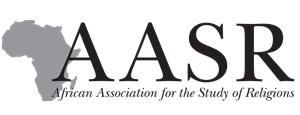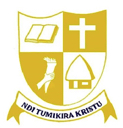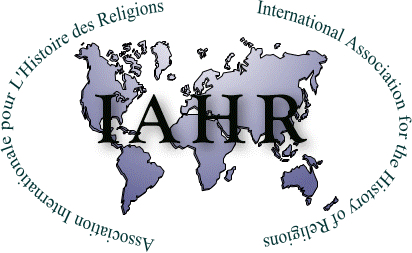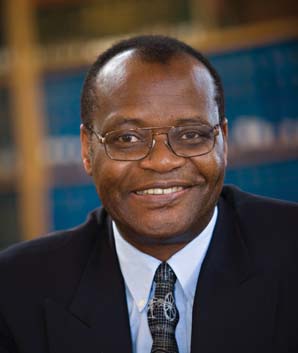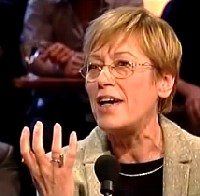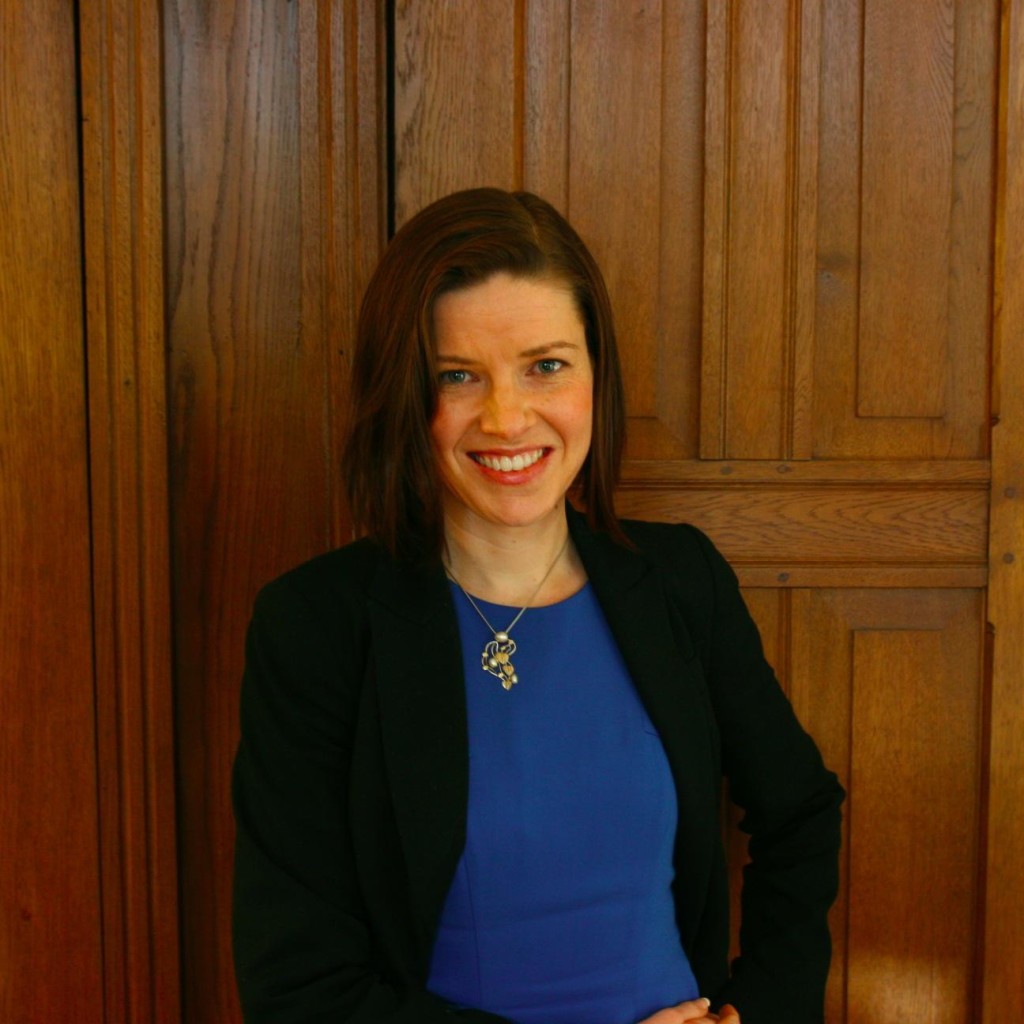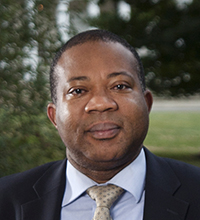2017
Cfp: GLOBAL AFRICAN INDIGENOUS & DERIVED RELIGIONS
International, Interdisciplinary Conference
GLOBAL AFRICAN INDIGENOUS & DERIVED RELIGIONS
Universidade Federal de Juiz de Fora (UFJF) Brazil. 22-25 October 2018
The historical encounter of the African continent with the Arab and transatlantic slave trade, colonial/imperial histories and influences, was mostly characterized by exploitation and expropriation, dehumanization and human rights violations, but also the destruction of indigenous religions, cultural patterns, sacred sites and objects. European/Arab cultural imprints are also seen in the introduction of Christianity and Islam. This encounter has led, on the one hand, to the denigration of indigenous religions, resulting in the banning or abandonment of aspects of their cosmologies, ritual symbolism and practices. On the other hand, indigenous religions responded to social change leading to mutual influence, and revitalization of aspects of the indigenous religious cultures.
The significance of indigenous African religions and spirituality is partly demonstrated in their plurality in Africa and its diaspora historically and culturally. Migration, tourism and new media technologies has facilitated the introduction of African religions into new geo-cultural contexts. For instance, in Brazil, Candomblé and Umbanda have remained resilient in the face of racism, public criminalization; just as majority of Afro-Brazilians continue to encounter injustice and socio-political marginalization. Despite threats of survival and extinction, Africans and their descendants strive to preserve their cultural heritage and religious identity.
African and African-derived religions have continued to impact other societies and world religions, while they have been influenced by them as well. Brazil is home to the largest Black population (African diaspora) in the world, besides Nigeria. Brazil’s recent demographics show African-Brazilians in the majority for the first time, with 2010 census showing over 50.7% black/mixed race, compared to 47.7% white population (IBGE). Brazil is home to Candomblé and Umbanda, two of the largest African-derived religions. Brazilian Portuguese was richly influenced by people of African descent and their languages, even as a new Afro-Brazilian vocabulary emerged. Candomblé rituals have been incorporated into the fabric of Brazilian national identity from New Year’s Eve offerings to the ocean (Revellion), Capoeira dance, Samba (rodas) and culinary preferences such as Acarajé fritters. In Umbanda, there is a loose affinity of Roman Catholic saints with African and indigenous deities. Indigenous religions and African-derived religions have also shaped world art, sculpture, painting and other cultural artifacts, which populate the world’s famous museums, galleries, libraries, and art exhibitions. The commodification of African music, art and religious objects is on the increase. The character of indigenous and African-derived religions in conditions of globality will continue to be shaped by how and to what extent they negotiate continuity, identity, and change.
The resilience and dynamism of religions of Africa and its diaspora requires more scholarly attention in exploring how they are central to everyday lives of Africans and its descendants. A proper grasp of their complex religious cosmologies, traditions and cultures will improve understanding of African peoples and its descendants in conditions of globality. To what extent do religious worldviews and practices remain relevant for Africans and their descendants in the face of negative public perception? How can we synthesize indigenous belief systems and rituals into a reference and source book? What makes African indigenous and derived religions tick against the backdrop of xenophobia, socioeconomic deprivation? How and to what extent has African indigenous and derived religions shaped the local contexts, cultures and societies within which they are practiced; and how were they influenced by other religions and cultures globally? How do indigenous religions and African-derived religions respond to global issues of poverty, corruption, conflict, peace, religious freedom and climate change? The 2nd Global African Indigenous and Derived Religions Conference will seek to address these and related questions and issues, and will provide a significant platform for scholars, practitioners of African Indigenous Religions and African-derived religions, policy makers, diaspora community groups, NGOs and FBOs and interested publics to critically appraise the status, nature and role of global African Indigenous and Derived Religions within local-global religious landscapes. The Conference will explore varied approaches to the study of Africa’s Indigenous Religions with emphasis on regional and diasporic focus. It will discuss the inherent challenges faced by students and scholars in studying indigenous and African-derived religions globally. The conference also seeks to encourage scholarly research and explore avenues for the documentation and preservation of African indigenous and derived religions.
Conference sub-themes include:
Defining Indigenous Religions and African-derived religions
Indigeneity, tradition and authenticity
Indigenous knowledge systems and Indigenous methodologies
Racial politics, human rights and social justice
Indigene-ship, Citizenship and Land Rights
Identity construction and negotiation
African philosophy, worldviews, belief systems, rituals, festivals and ceremonies
Ritual studies; social organisation of African indigenous and derived religions
Media, Aesthetics and Material culture
Religious leadership, good governance and corruption
Gender and Power
Women and Youth
Diaspora formation
Poverty and sustainable development
African Indigenous/Derived religions and Political Economy
African Indigenous/Derived religions and Social Impact
NGOs, FBOs and Civil Society
Sources and Documentation of Global African Indigenous Religions
Indigenous peoples and environmental management
African indigenous religions, African derived religions, globalization and modernity
Paper/Panel abstract proposals; and Participation only form should be submitted via the conference website: https://conferenciareligio.wixsite.com/afro/copia-inicio. All additional inquiries should be sent to the conference email: conferenciareligioesafro@gmail.com
Paper/Panel Proposal Deadline: Extended until April 30, 2018
Proposals should include: name, institutional affiliation and status, email address, contact phone, paper/panel title and abstract (250 words)
Notification of successful proposals will be made by May 30, 2018.
Conference Registration: early-bird registration begins on June 1 and ends on June 30, 2018. A late fee will be charged thereafter.
Conference fees: to be announced soon
§ Accommodation: University Hostels and Guest Houses will be negotiated at group rates for the duration of the conference. Bookings will be made online, via conference website: https://conferenciareligio.wixsite.com/afro/copia-inicio.
§Limited travel subsidies may be available for participants from the Global South with accepted paper/panel proposals.
Conference host institution: Universidade Federal de Juiz de Fora, Brazil
Conveners: Afe Adogame, Raimundo Barreto (Princeton, NJ. USA); Jimmy Cabral (UFJF, Brazil) & Pan-African Strategic and Policy Research Group
https://conferenciareligio.wixsite.com/afro/copia-inicio
2017
Religion, LGBT Activism and Queer Politics in Africa
Call for Papers for AASR Conference Panel
Ezra Chitando (World Council of Churches/University of Zimbabwe) and Adriaan van Klinken (University of Leeds)
The African Association for the Study of Religions holds its biennial conference on the theme “Revisiting Religion, Politics, and the State in Africa and the African Diaspora”, in Lusaka, 1-4 August, 2018. Please find the general Call for Papers here.
As part of this conference, we plan to convene a panel on the theme of “Religion, LGBT Activism and Queer Politics in Africa”. Moving beyond a focus on the politicisation of homosexuality and LGBT rights by the state as well as by religious actors, in this panel we draw attention to the counter-mobilisations of LGBT activists and allies. We solicit papers that examine the strategies and methods of LGBT activism in various parts of the continent, specifically exploring the ways in which LGBT actors appropriate, negotiate and reclaim religious beliefs, practices and symbols. Papers not only investigate the relationship between African LGBT activism and faith, but also explore the underlying queer political and religious imaginations informing. Hence the panel as a whole seeks to make a twofold intervention: putting the category of religion central in the emerging field of African queer studies, and putting matters of sexual diversity and queer politics central in the field of African religious studies.
Anyone interested in being part of this panel: please submit a 300 words abstract, as well as your contact details (name, position, institutional affiliation, email address, and phone number), to the conveners by email (chitsa21@yahoo.com and a.vanklinken@leeds.ac.uk) by 15 January, 2018.
2017
Cfp: Religion and the 21st Century City
University of Ghana
DEPARTMENT FOR THE STUDY OF RELIGIONS
In Collaboration With
SCHOOL OF ARTS
Call for Papers for an International Conference on
RELIGION AND THE 21ST CENTURY CITY: OPENINGS AND CLOSURES
University of Ghana, 20th-22nd June, 2018
Extended deadline for submission of abstracts: 15 February 2018
For full details, see the Call for Papers
2017
8th AASR Conference in Africa: Zambia 2018
_____________________________________________________________________
8th AASR CONFERENCE IN AFRICA
REVISITING RELIGION, POLITICS, AND THE STATE IN AFRICA AND THE AFRICAN DIASPORA
THE UNIVERSITY OF ZAMBIA AND JUSTO MWALE UNIVERSITY
LUSAKA, ZAMBIA
1 – 4 AUGUST 2018
The African Association for the Study of Religions (AASR) invites proposals for individual papers, panels, roundtables, and poster presentations for its biennial conference to be held at the Justo Mwale University, Lusaka, Zambia, from 1 – 4 August 2018. This Conference is co-sponsored by the International Association for the History of Religions (IAHR) and is recognized as an IAHR Regional Conference.
Conference Flyer
(Click to view and download PDF)
_____________________________________________________________________
CALL FOR PAPERS
Globally, there is recognition of tensions arising out of increased levels of inequality, anxieties about migration, citizenship, and belonging, and the concomitant democratic recession. The reality and consequences of inequity and democratic backsliding have gained momentum in Africa as well. The ‘Africa Rising’ euphoria has waned because economic growth has eluded large sections of society, depriving Africans of peace and security, and resulting in a fertile ground for political instability and leadership crises. Poverty and inequality are linked to the human rights and development debate, in the wake of exclusionary political practices, which have dispossessed citizens of the rights to equal participation in negotiating the social, economic, political, and cultural realities of their communities. Religious leaders, generally still regarded as the most trusted leaders in society, are under pressure to respond to this evolving situation. It is within this context, that the AASR seeks to revisit the relationship between religion(s), politics, and (non)state actors in Africa and the African Diaspora, to improve our understanding of how various actors and institutions are responding to the current challenges, and envisage their role in the future.
The conference invites panel and paper proposals that address this theme and related issues, taking into consideration the specific contexts of Africa and the African diaspora. Papers that engage any of the following themes, and related ones, are invited for presentation at this conference:
- Methodological and Theoretical Perspectives: Media and religion; Religion, law, and human rights; Political implications of academic research; Methods for researching African states and political actors
- Religion and Politics: Comparative studies of religion and states in Africa; Poiliticization of religion and religionization of politics; Religion in quest and exercise of power; Religion and solutions to political crises
- Religion and Society: Secular constitutions and/in religious nations; Society and religious pluralism; Religion for education in African States; Social responsibility
- Social Cohesion: Religion, Citizenship, Identity, and Nationalism: Gender and leadership; The politics of sexuality; Internal migrations and refugees in Africa; Religion and Xenophobia; Citizenship and land; Citizenship and difference; Religious nations
- Religion, Violence, Security, and Peacebuilding: Religion and radicalization; Religion and solutions to security and peace
- Religion and Sustainable Development: Their role and impact of the African on the State(s) in Africa; African politico-economies and religious landscapes
- Diaspora in the context of: Retentions and transformations in the Atlantic World; International and Mediterranean immigration; Religious Ministries in the Diaspora
PROPOSAL SUBMISSIONS
- Please use the official Proposal Form.
- All proposals should be emailed to: aasrzambia@gmail.com
- Abstracts should not exceed three hundred (300) words.
- Authors should ensure that abstracts reflect the title of their paper(s).
- Author’s contact details (name, position, institutional affiliation, email address, and phone number) must also be provided.
- The Cfp closed on 16 February 2018. The Local Organizing Committee is currently reviewing and responding to proposals.
For further enquiries, please contact:
Dr. Marja Hinfelaar: marja.hinfelaar@gmail.com
Dr. Judith Ziwa: judith.ziwa@unza.zm
Dr. Elias Kifon Bongmba: bongmba@rice.edu
Dr. Corey Williams: c.l.williams@hum.leidenuniv.nl
_____________________________________________________________________
KEYNOTE SPEAKER
Muna B. Ndulo
Professor of Law; Elizabeth and Arthur Reich Director, Leo and Arvilla Berger International Legal Studies Program; Director of the Institute for African Development, Cornell University.
PROFESSIONAL BIOGRAPHY
Muna Ndulo is an internationally recognized scholar in the fields of constitution making, governance and institution building, international criminal law, African legal systems, human rights, and international law and foreign direct investments. He has published 19 books, 29 book chapters and over 100 articles in academic journals. He is Honorary Professor of Law, Faculty of Law, University of Cape Town, Extraordinary Professor of Law, University of the Free State South Africa, Extraordinary Professor of Law, University of the Western Cape, South Africa, and was formerly Professor of Law and Dean of the School of Law at the University of Zambia. He has been an arbitrator under International Chamber of Commerce (ICC).
Professor Ndulo has served as a Legal Officer in the International Trade Law Branch of the United Nations Commission on International Trade Law (UNCITRAL), Political and Legal Adviser with the United Nations Mission Observer Mission in South Africa (UNOMSA) and to the Special Representative of the United Nations Secretary General to South Africa, Legal Adviser to the United Nations Assistance Mission to EAST Timor (UNAMET), Legal Expert to the United Nations Mission to Kosovo (UNAMIK), and Legal Expert to the United Nations Mission to Afghanistan (UNAMA).
He has acted as consultant to the African Development Bank (ADB), World Bank, Economic Commission for Africa (ECA), United Nations Development Program (UNDP), National Democratic Institute (NDI) United Sates Institute for Peace (USIP) and International Development Law Organization (IDLO). He has also acted as consultant to the Kenya 2010 Constitutional Process, Zimbabwe Constitutional Process, Somalia, and Sudan.
Professor Ndulo is founder of the Southern African Institute for Public Policy and Research (SAIPAR) and member of its Board of Directors. He is also a member of the Board of the African Association of International Law, the Advisory Committee of Human Rights Watch Africa, and he formerly served as Chairperson for Gender Links, a South African NGO.
_____________________________________________________________________
PLENARY SPEAKERS
Gerrie ter Haar
Gerrie is emeritus professor of Religion and Development at the International Institute of Social Studies (ISS) of Erasmus University Rotterdam. A scholar of religion specialising in the religious traditions of Africa and the African diaspora, she has authored or edited more than twenty books, including translations into French, Italian, Spanish and Japanese. She is currently co-editor of the book series Religion in Modern Africa (Routledge). She has published in a wide range of academic and professional journals and has served on various editorial boards. Apart from specific themes in African religions, her publications reflect her main research interests over the years: development, human rights, conflict and peace, religion and politics, religion and migration.
Gerrie ter Haar has held many international positions, including as Vice-President of the International Association for the History of Religions (IAHR). In 2005 she was the Academic Programme Director of the XIXth IAHR World Congress in Tokyo. She is also a founding member of the African Association for the Study of Religions (AASR). Gerrie has a wide experience of media work, both national and international, and continues to participate in public debates on issues concerning the role of religion in contemporary society. She has been a consultant to international bodies and been active in formulating policy advice for several government bodies and international organisations. In her previous career Gerrie worked at Utrecht University and for the Dutch section of Amnesty International, from where she retains a strong interest in human rights.
Erin Wilson
Dr. Erin K. Wilson is Director of the Centre for Religion, Conflict and the Public Domain and Associate Professor of Religion and Politics, Faculty of Theology and Religious Studies, University of Groningen, The Netherlands. Her research is positioned at the intersection of religious studies and International Relations, with particular interest in the impact of secular worldviews in areas of global justice, human rights, forced migration, development and gender, and the development of alternative theoretical frames beyond ‘religious’ and ‘secular’. Her books include The Refugee Crisis and Religion: Secularism, Security and Hospitality in Question (co-edited with Luca Mavelli, Rowman and Littlefield International 2016), After Secularism: Rethinking Religion in Global Politics (Palgrave 2012), and Justice Globalism: Ideology, Crisis, Policy (with Manfred B. Steger and James Goodman, Sage 2013). She has co-edited The religious as political and the political as religious: the blurring of sacred and secular in contemporary International Relations (Special Issue of Politics Religion Ideology), and her articles have appeared in International Studies Quarterly, Journal of Refugee Studies, Globalizations, Politics Religion Ideology and Global Society.
_____________________________________________________________________
SPECIAL SESSION FOR STUDENTS & EARLY CAREER SCHOLARS
ACADEMIC JOBS, GRANTS, AND PUBLISHING
Led by Prof. Afe Adogame, the Maxwell M. Upson Professor of Christianity and Society at Princeton Theological Seminary, USA.
Afe is a leading scholar of the African Diaspora. He holds a PhD in history of religions from the University of Bayreuth in Germany and has served as Associate Professor of World Christianity and Religious Studies, and Director International at the School of Divinity, New College, at The University of Edinburgh in Scotland. His teaching and research interests are broad, but tend to focus on interrogating new dynamics of religious experiences and expressions in Africa and the African Diaspora, with a particular focus on African Christianities and new indigenous religious movements; the interconnectedness between religion and migration, globalization, politics, economy, media and the civil society.
_____________________________________________________________________
MEMBERSHIP DUES
Prospective participants in this conference will be registered as a participant only after they have joined AASR by paying the annual AASR membership dues for 2018:
To join the AASR and/or to pay for AASR annual dues, see: https://www.a-asr.org//membership/
REGISTRATION COSTS
All participants must also pay conference registration costs, which are as follows:
NOTE: The ‘Early Bird Rate’ has been extended to 15 June 2018.
Conference registration includes the following: entrance to the conference, reception, tea breaks and light refreshments, daily lunches, and conference materials (bag and programme).
OPTIONAL EXCURSION
An optional excursion to the Chaminuka Game Reserve nearby Lusaka is being arranged for Saturday, 4 August. The total cost is $50 and can be paid for in advance along with registration costs. For more information about the reserve, see: http://www.chaminuka.com
PAYMENT OPTIONS
- Transfer directly into the AASR central bank account: African Association for the Study of Religions, Bank of Scotland Branch Code: 80-20-00; Account No. 00208442; BIC: BOFSGB21168; IBAN: GB05 BOFS 8020 0000 2084 42
- Paypal: https://www.a-asr.org//membership/
- If the options above are not feasible or too expensive, you may pay directly through your national or regional representative: https://www.a-asr.org//aasr-executive/
Please, contact AASR Treasurer Dr Abel Ugba (abelugba@yahoo.co.uk) if you encounter difficulties making payment or need information about other payment options.
_____________________________________________________________________
ACCOMMODATION OPTIONS
The Local Organising Committee recommends the following accommodation options. Participants are requested to book their accommodation independently by either calling or booking online. In addition to the hotel websites, participants can also book online with sites such as Tripadvisor, Expedia, Booking, etc.
Justo Mwale University
Rates from $15—$60/night
Address: Plot 19 Munali Road, Lusaka, Zambia
Email: secretary@justomwale.net
Website: http://www.justomwale.net/index.php
Mika Lodge
Rates from $60/night
Address: Plot number 106 Central Street, Jesmondine, Lusaka, Zambia
Phone: +260961876570 or +260211291557
Website: http://mikahotels.com/mika-lodge-jesmondine/
Palmwood Lodge
Rates from $80/night
Address: Plot 609 Chudleigh, Lusaka, Zambia
Phone: +260953634880 (room reservations); +260211295411 or +260977895576 (for general enquiries)
Website: http://www.palmwoodlodge.co.zm
Cresta Golfview
Rates from $130/night
Address: GPS coordinates (-15.386530, 28.345195)
Phone: +260211290770
Website: http://crestagolfview.com
Protea Hotel Lusaka
Rates from $150/night
Address: Arcades Shopping Complex Lusaka 10101 Zambia
Phone: +260211254664
Website: https://www.marriott.com/hotels/travel/LUNLS-protea-hotel-lusaka
___________________________________________
ABOUT THE AASR
The African Association for the Study of Religions (AASR) is an academic association that promotes the study of religions in Africa through international collaboration in research, publishing, and teaching. AASR was founded in 1992 in Harare, Zimbabwe at a Regional Conference of the International Association for the History of Religions (IAHR). The AASR has been an affiliate organization of the IAHR since 1995. In particular, the AASR aims to stimulate the academic study of religions in Africa in the following ways:
- By providing a forum for multilateral communications between scholars of African religions
- By facilitating the exchange of resources and information
- By encouraging international collaboration in research between scholars and institutions in Africa and those outside the continent
- By developing publishing opportunities particularly for scholars based in Africa
- By establishing a travel fund to enable scholars to attend academic conferences
- By organising conferences in Africa and panels on the religions of Africa
- By establishing a newsletter and website to increase communication between scholars of African religions
- By creating a directory of scholars in the field of African religions
2017
AAR African Religions Group, CfP 2017
The Call for Papers of the African Religions Group for the upcoming 2017 AAR Annual Meeting has now been published.
Deadline: 1 March

